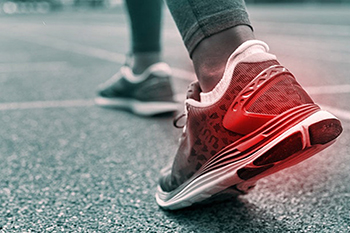North Andover (978) 686-7623
Tewksbury (978) 640-1010
Symptoms of Wearing the Wrong Running Shoes

Wearing the wrong running shoes can lead to several issues that affect comfort, performance, and overall foot health. Poor performance is a common sign, as improper support or fit can cause discomfort and inefficiency while running. Runners may experience fatigue more quickly and struggle with maintaining proper form. Premature wear and tear on the shoes can also indicate a poor match, as excessive breakdown of the sole or cushioning suggests inadequate shock absorption or improper foot alignment. Injury is another major concern, as wearing ill-fitting shoes can contribute to blisters, shin splints, knee pain, or even stress fractures. Persistent discomfort, muscle soreness, and joint pain may develop over time. If you have developed foot conditions from wearing the wrong type of running shoe, it is suggested that you visit a podiatrist who can treat various foot ailments, and guide you on what type of shoes to buy for your desired style of running.
If you are a runner, wearing the right running shoe is essential. For more information, contact one of our podiatrists from Foot Health Center of Merrimack Valley. Our doctors can provide the care you need to keep you pain-free and on your feet.
Choosing the Right Running Shoe for Your Foot Type
To increase performance and avoid the risk of injury, it is important to choose the right running shoe based on your foot type. The general design of running shoes revolves around pronation, which is how the ankle rolls from outside to inside when the foot strikes the ground.
- Neutral runners are able to choose from a wide variety of shoes, including minimalist shoes or even going barefoot.
- Runners who overpronate, or experience an over-abundance of ankle rolling, should choose shoes that provide extra motion control and stability.
- Runners who underpronate, or supinate, have feet that have high arches and lack flexibility, preventing shock absorption. They require shoes with more flexibility and cushion.
If you have any questions please feel free to contact one of our offices located in North Andover, and Tewksbury, MA . We offer the newest diagnostic and treatment technologies for all your foot and ankle needs.






